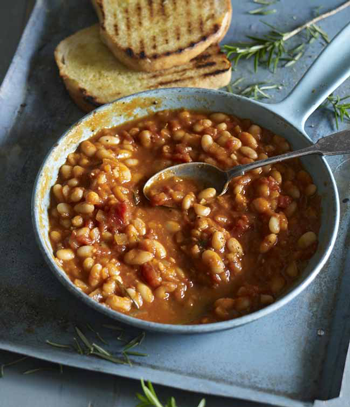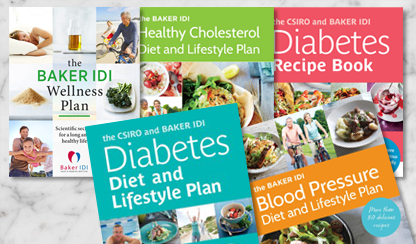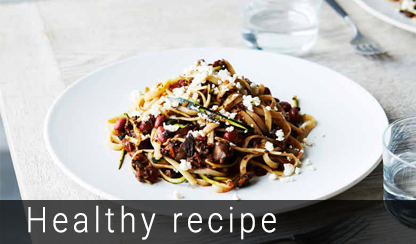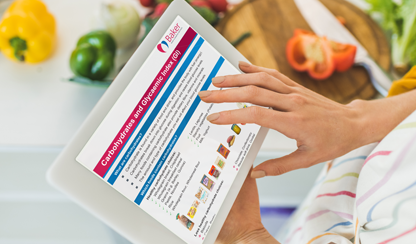If you are a fan of tinned baked beans, then this is the perfect homemade salt-free substitute. As beans take a while to cook, you could always double the quantities, then freeze portion-sized amounts in airtight containers ready for when the craving strikes again. You will need to soak the dried beans overnight before cooking.
|
Serves 4–6
Preparation time: 5 minutes
Cooking time: 90 minutes
Ingredients
2 tablespoons olive oil
2 onions, finely chopped
2 cloves garlic
2 tablespoons low-salt tomato paste (puree)
2 × 400g tins low-salt chopped tomato
1 fresh bay leaf
1 sprig rosemary
1 tablespoon mustard powder
pinch ground cloves
1/3 cup (80ml) maple syrup
2½ tablespoons balsamic vinegar, or to taste
1½ cups (300g) soaked dried beans (kidney beans or cannellini beans)*
1 cup (250 ml) bean cooking liquid, reserved
small handful of chopped flat-leaf parsley, to serve (optional)
* Preparing dried beans
Place beans in a large bowl, cover with cold water and leave to soak for 24 hours.
Drain water and add beans to a saucepan with fresh cold water, bring to a boil and simmer for about 1 hour (until beans are tender).
|

|
|
Preparation
- Heat the oil in a large heavy-based saucepan or deep frying pan over medium heat, then add the onion and garlic. Cook, stirring often, for 6–7 minutes or until the onion has softened. Add the tomato paste, tomato, bay leaf, rosemary, mustard powder, cloves, syrup and vinegar and stir to combine well. Bring to a simmer, then add the beans and the reserved cooking liquid.
|
- Cook over low–medium heat, stirring occasionally, for 45 minutes or until the beans are tender; add extra water if the pan starts to dry out. Remove the bay leaf and rosemary, season to taste with freshly ground black pepper, then sprinkle with parsley (if using), and serve.
|
This recipe is an excerpt from the Blood Pressure Diet and Lifestyle Plan which provides more than 80 delicious recipes to get you on the road to reducing your blood pressure.






